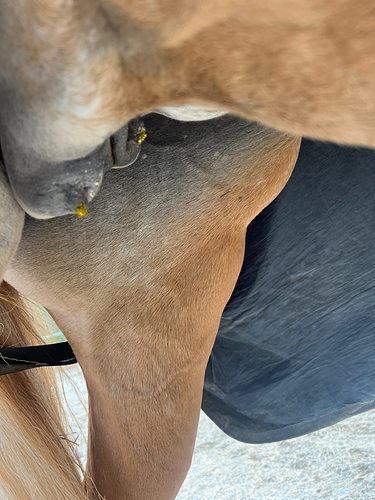Last Tuesday (a week ago) I arrived at the barn to find my mare in a full-blown mastitis event. Udder swollen, goo hanging from the teats, edema from the udder forward almost a foot.
Straight to vet we went. Vet milked out the most disgusting yellow chunky goop ever, and sent it to pathology. Put mare on SMZ’s.
SAA was over 700.
Took miss mare several days to act “normal”, and not punky. She is still not really eating like normal.
Yesterday, Monday, I talked with vet. Pathology came back and it GREW NOTHING. Vet is very puzzled by this and is going to call the lab to ask questions.
How do you have an obvious infection, yet grow nothing from a culture? What is (or might be) going on here?

